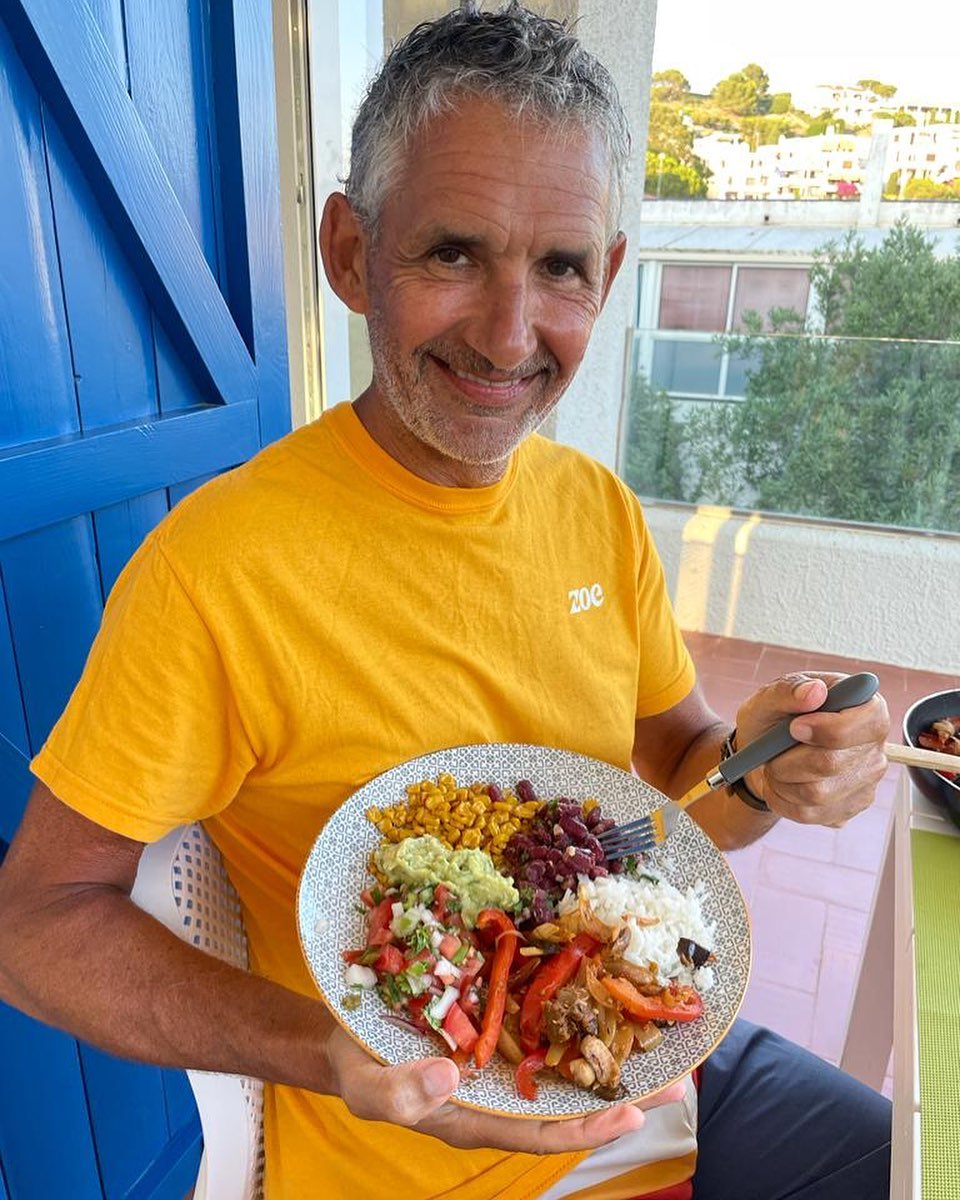London Professor Tim Spector is an expert on gut bacteria, and what he’s learned has altered his own diet. Here are six changes he’s made.
He’s become a lot fussier about bread
He realised that just because bread looks brown and has seedy sprinkles on top doesn’t mean a thing. Often, it’s brown because it’s artificially coloured.
There’s a world of difference between factory-made supermarket bread and more traditionally made breads such as sourdough or pumpernickel. So if you took up making sourdough during the covid lockdown, stick with it. Otherwise, find a good bakery.
Tim also points out that eating low-fibre white bread is equivalent to eating sugar. And bagels, baguettes and croissants belong in the ‘occasional treat’ category.
He doesn’t drink much milk — of any sort
While there’s not much evidence that adults need milk, he’s also concerned about the way commercial farming treats animals.
Like the rest of us, he’s learned that full-fat dairy is more nutritious than the low-fat variety. Unlike milk, full-fat natural yoghurt contains healthy gut microbes.
He makes his own kefir (fermented milk). It’s like a thin, tangy yoghurt. I’ve made it, and it’s probably an acquired taste.
While he has misgivings about dairy from industrial farming, Tim isn’t keen on most plant milks either. He points out that growing almonds is water intensive, and soy and oat milk are highly processed. They also often contain a string of additives and sugar.
If you can’t or don’t eat dairy products, other sources of calcium include tahini, almonds and calcium-set tofu.
He eats a wide variety of plant foods
The single most important dietary factor his research team has found for better gut health is the number of different plants we eat weekly. He aims for 30, including fruit and vegetables, nuts and seeds, spices, herbs, pulses and grains.
He’s also found ways to slip extra plant ingredients into his meals. For example, he adds red lentils to pasta sauce, tops his yoghurt with spices and mixed nuts and seeds, and starts a lot of cooked meals with a base of onions, garlic and carrot sauteed in olive oil.
In 2017 he visited the Hadza people — a hunter-gatherer tribe in northern Tanzania — and was struck by the diverse range of plants, seeds, fruits and nuts they eat. Along with the odd porcupine.
He’s discovered mushrooms
The flavour and texture of mushrooms (which, he says, are more animal than plant) has made it easier for him to cut down on meat. He’s also become more selective about meat, sticking to what’s local, grass-fed and organic.
He has a late breakfast or skips it
He leaves 14 hours between dinner and breakfast to give his gut time to properly break down last night’s dinner and replenish his immune system. One thing Tim doesn’t seem to skip is coffee. While it’s not for everyone, coffee contains plenty of fibre and healthy plant chemicals.
He’s a fermentation fan
He talks a lot about the 4Ks —kefir, kombucha, kimchi and kraut.
We can buy these or make them ourselves. Recently, I also discovered curtido (from a recipe in an Ottolenghi cookbook) which is described as a lightly fermented Salvadoran cabbage slaw. I find it easier to make than sauerkraut. For one thing it ferments for four days rather than a week.
Not inspired by pickled cabbage or any of the other ‘Ks’? Good quality yoghurt and cheese also tick the fermentation (or cultured) box. So does miso.
Photo Source: Tim Spector

